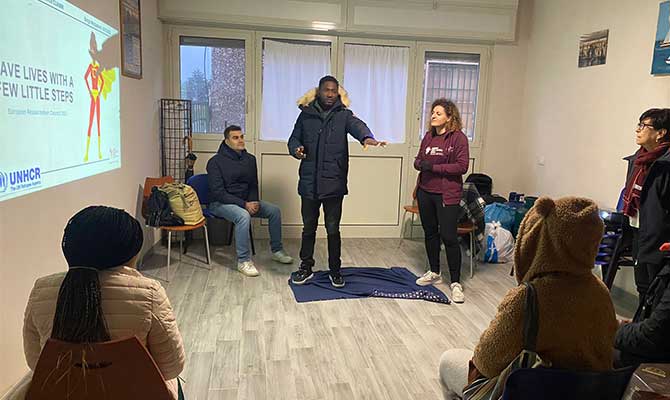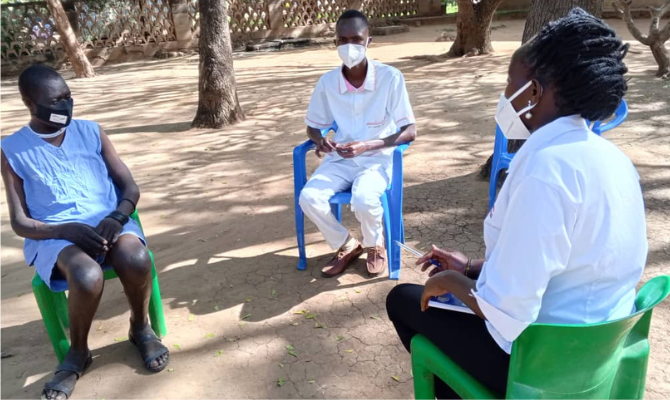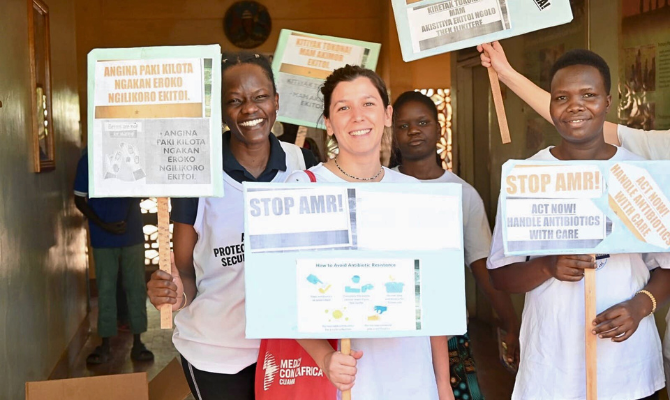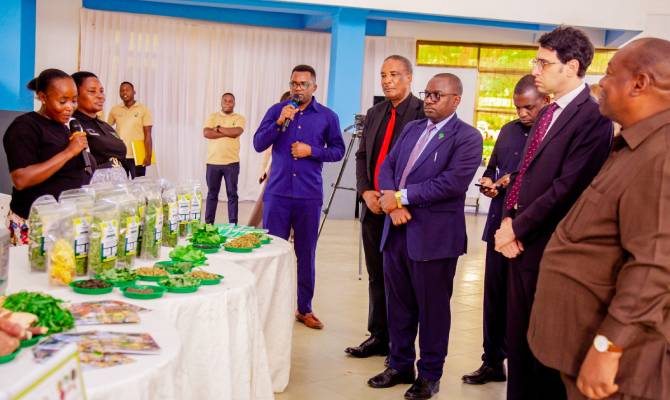Over 500 basic and 50 specialist examinations, 200 people targeted as at-risk of violence and supported, 55 operators involved in training activities as the first aid course in which women and girls from the informal settlement in Pista di Borgo Mezzanone took part.
Within informal settlements and in vulnerable settings, gender based violence is an often unseen yet present element. For this reason, Doctors with Africa Cuamm chose to offer women a first aid course which is both a tool for women’s empowerment and for transmission of skills.
Training is of inestimable value. By training those women we have started a domino effect since they will be spokespersons across their settlements of origin and they will be the ones to inform the people. By doing so, basic knowledge will be shared helping people to cope with emergency situation” claims Dott.ssa Marcella Schiavone, Cuamm doctor who drove the course together with Ibrahim Conteh, cultural mediator. A 4 hours training during which participants explored theoretical and practical issues, got to know medical protocols and how to act during emergencies.”We offered the training to women from all ways of life, in the room where we gathered there were those who had previous knowledge and some others who faced the topics for the first time. We hope to engage more people in the training in the future, this was a first step we are proud of.
Skills that are useful on the job and beyond, and that can be proven by the certificate the participants received at the end of the course by Doctors with Africa Cuamm staff.
The first aid course is one of the activities of the project ‘SEEDS: SCREEN- EVALUATE- EDUCATE- DEVELOP-SUPPORT. Putting survivors at the centre: improving health conditions of asylum-seekers, refugees and stateless people and preventing and responding to gender-based violence (GBV) in informal settlements in Apulia” implemented by Doctors with Africa Cuamm in collaboration with the United Nations High Commissioner for Refugees UNHCR aimed at improving health conditions of asylum-seekers, refugees and stateless people and preventing and responding to gender-based violence (GBV) in informal settlements in Apulia.
Among others, the programme also included one-to-one and group awareness-raising activities to reach, train and inform the target audience (asylum seekers, refugees) about their rights while the mobile clinics, composed of a doctor, a nurse, a socio-health worker, a cultural mediator and a driver, drove across the province of Foggia to offer medical care in the areas of Gran Ghetto di Rignano, Ghetto Pista di Borgo Mezzanone, Casa Sankara, Arena, and Borgo Cicerone.
Not only basic health care but also new services and specialist examinations such as gynaecological consultations and gender-based violence prevention courses introduced to prevent and respond to the needs of women and girls, who are often victims of violence. A strong collaboration with social assistance services in the area, in particular with the Local Health Authority (ASL Foggia), has also made it possible to offer, when necessary, psychological support and specialist assistance by referring patients to hospitals in the cities of Foggia and Bari.
A definitely positive balance that confirms the efficiency of being “with” that Doctors with Africa carries in its name and in its interventions, in Africa as in Italy





